In a General Chapter of the SVD, in the 90s, an expression emerged, which few understood and that can help us to understand the spiritual journey of our Saint. It is the English word “passing-over”, or to pass the borders. With this, an attempt was then made to understand our service to the Church and to the world: as missionaries we should be frontiersmen, always ready to go to new frontiers – not just geographical ones -but where the Spirit sends us. Joseph experienced this continual crossing of borders from his childhood until his death in China. His life can be read under the expression “passing-over” and from him we can learn what it means to be available for the mission, or to be free for the mission. Let’s see how he has lived it throughout his life. We will make our reflection on 4 points: a. from Oies to Bressanone; b. from St. Martin to Steyl; c. from Steyl to China; d. purification in China.
a. From Oies to Bressanone – Let’s not forget: Joseph is a member of a small ethnic group: the Ladins. He learned the mother tongue, but at school he had to learn Italian and German. When he arrived in Bressanone he had to improve his German to finish high school and study theology. The fact of belonging to a sociologically insignificant group creates in the person the need to confront the big world. One can close oneself of from others or one will welcome others. – Joseph is 10 years old. He leaves the security of his town, the protection of the Badia Valley, and his family and begins to live as a poor student in the city. He opens his heart to the new city and must recognize the limitations of a small 2/3 house town.
b. From St. Martin to Steyl – It is the crucial decision in Joseph’s life. After studying and receiving priestly ordination, Joseph is sent by the Bishop to a town not far from Oies. In St. Martin he works as a chaplain and teacher for a few months. He is very well and happy with his people: he walks through the mountains to bring the comfort of Christ to the dying. He has a very close relationship with the children at school. But the call that comes from afar accompanies him.
Father Mitterrutzner and the friars of Neustift had formed his youthful heart that left a deep mark. Enthusiasm for the mission is very much alive in Tyrol. D. Comboni was born very close, in Limone di Garda. The interest in the people where the Gospel penetrates is remarkable. He specializes for the mission of current Sudan. Why Joseph decides on Asia remains an enigma.
One day in January 1878, the newspaper of the Diocese arrived. In it, there is an ad about a missionary house in Steyl / Holland. Arnold in Steyl starts something new and needs collaborators. It is the specific call that Joseph awaited. The Parish Priest of St. Martin cannot believe that Joseph is leaving his job as chaplain to go to the mission house. He gambles his two ears, which he will later redeem for 70 Gulden (silver coins), when our saint says goodbye to the community. Joseph is a young man full of enthusiasm for the kingdom of God. You can imagine what leaving St. Martin meant for him: the good people loved him, the children at school adored their teacher, the mountains created so much nostalgia, the financial security, the closeness to his family. During the Summer of 1878, in July, he will meet Arnold Janssen and his enthusiasm goes through a strong moment of crisis. But the decision is that God leads him through some doubts, but Joseph remains faithful to his call to mission.
c. From Steyl to China – Joseph arrives in Steyl in the last days of August 1878. In March of the following year he travels from Ancona to China. Before going to Italy, our saint has the possibility of spending a (few) days with the family in Oies. In his farewell sermon he uses expressions that are very rare for us today. “I know the indescribable misery of our brothers, he says, who with tears in their eyes stretch out their arms and ask for help.” Joseph will soon discover that the missionary reality in China is something else. But he is a man of his time. The mission is a war against the devil and the pagan polytheistic cults. Joseph thinks that when the missionary arrives, hell begins to tremble. It is about saving men from the clutches of the Evil One.
Upon arriving in Hong Kong, he wrote to his family: “Ecco trovato quel paese, che già da tanti anni pregavo Iddio di showmi; ho trovato la mia patria nuova, che già gives so much tempo I breathe di vedere”. China will become Joseph´s homeland, but he must pay a high price to acquire this new identity. Thus writes a young missionary, naive, unprepared for the encounter with the new culture, but very convinced of his spiritual mission in China. The reality will be a very dramatic novitiate for Joseph. It is true that he begins to dress like a Chinese and this change is not very complicated. Joseph does not find any Chinese with tears in their eyes, interested in his missionary work. The Chinese laughed at him, at his European nose, at the way he speaks the Chinese language. Joseph is a sensitive man: he left the Holy Land of Tyrol, his family, the safety of St. Martin to sacrifice his life in the service of the Gospel. And the crisis begins… I am convinced that between the years 1878 and 1886 José went through a tremendous vocational crisis. He writes things that cannot be published about China and the Chinese. He quotes the word of an old missionary in China: “The missionary is hated by many, tolerated by some and loved by no one.” He writes: “China really is the Demonic Realm!” Joseph is on the edge of the precipice… or of redemption.
d. The purification in China – “Passing-over” on himself – Leaving the family and the mountains of OIES was for little Joseph a huge step and a big change; leaving St. Martin for Steyl a decision filled with youthful and naive enthusiasm, leaving Europe and becoming a missionary in China is a tremendous risk. After this great crisis, something should change. Joseph senses this very well, when two years after arriving in Hong Kong he writes: “The most important thing still has to be done: a change of the inner self. And this is not done in a day or in a year, without suffering.”
On August 15, 1886-at the end of his vocational crisis-and 7 years after arriving in China, Joseph writes in his Diary: “Pray, work, and bear the suffering. May your whole life be for the Chinese and one day you may die among your dear Chinese. Adieu! Mia cara patria aldilà del mare!” I think these last words clearly show us where the problem was centered. Joseph was tempted to return to Europe, but now he has overcome the temptation. The language changes … but above all his relationship with the Mission has changed.
What happened? Who changed? The Chinese people? Joseph changed, his inner self has changed he is not the same. Our Saint converted to the people and began to love those people. In the future, he will not allow people to talk negatively about China. Sometimes it seems somewhat exaggerated (typical of the neo-converts). Father Erlemann used to say that in these years-after his conversion-Joseph saw only good things in the Chinese. “The Chinese declared holy, with the only difference that they were not baptized.”
Joseph learned to love the Chinese people. The Mission is that: a question of love. Loving God and his people. The mission is the realization of the word of our saint: “The only language that everyone understands is the language of love.” Or, as the great teacher Teresa d’Avila used to say: “Without love, everyone is nothing!”
Jorge Manuel Fernandes, SVD
Father Jorge Manuel Fernandes was provincial of the SVD Portuguese province (POR), coordinator of the European zone, praeses of the Nemi community and spiritual advisor of the Colegio S. Peter in Rome. He is currently the rector of the community of Fátima, Portugal.
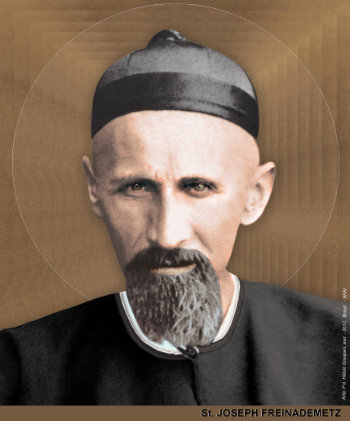
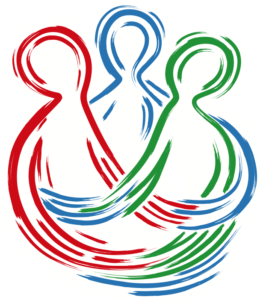
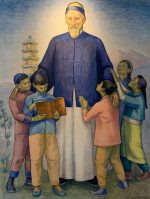
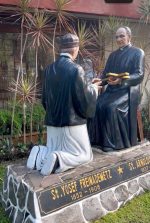
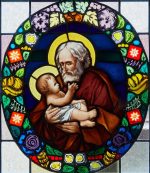

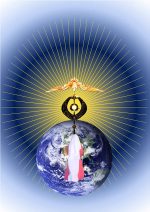
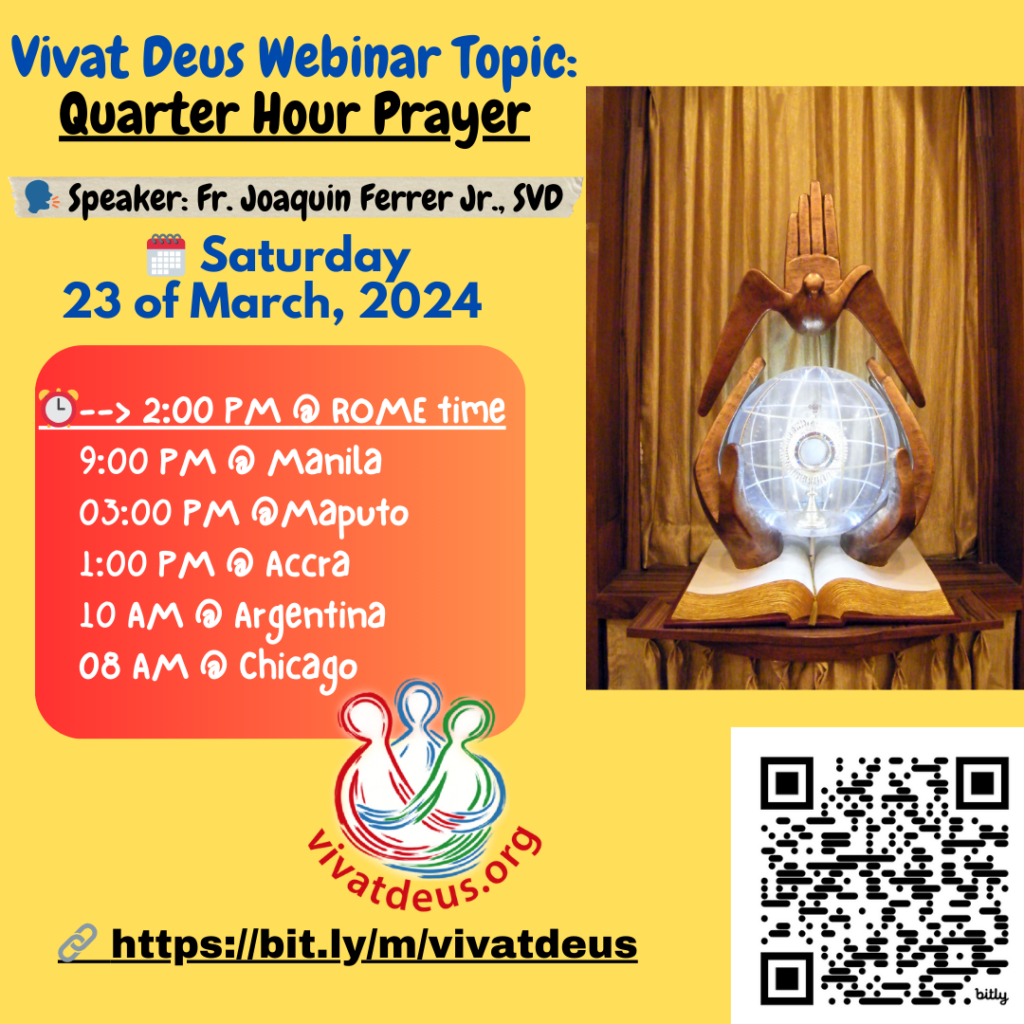
One Response
Muy buena reflexión, p. José! Tengo la impresión de que en nuestra formación falta una cierta visión de la vida de nuestros santos y beatos. Citamos mucho sus palabras, pero no siempre conocemos su vida, que era “de carne y hueso”, y por eso capaz de darnos orientación en las situaciones que nos toca vivir hoy.